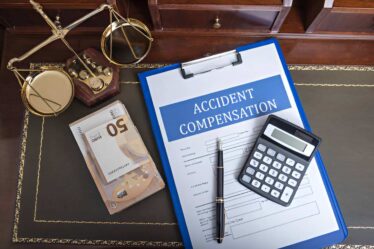
In the event of injury or harm due to someone else’s negligence, understanding your rights is essential for securing fair compensation and protecting your interests. Here, we present crucial tips to help you navigate the complex world of personal injury claims.
Recognizing Valid Personal Injury Claims
Personal injury law covers a wide range of situations where an individual suffers harm due to another party’s negligence or intentional actions. Common examples include car accidents, slip and falls, workplace injuries, medical malpractice, and product liability cases.
To have a valid claim, you must be able to demonstrate that another party’s actions or inactions directly caused your injury and resulting damages. Understanding the basics of what constitutes a personal injury claim is the first step in protecting your rights.
Acting Swiftly After an Injury
Time is critical in personal injury cases. Most jurisdictions have a statute of limitations that sets a deadline for filing a lawsuit. Acting quickly allows you to preserve evidence, gather witness statements while memories are fresh, and ensure you don’t miss any legal deadlines.
Additionally, seeking prompt medical attention not only benefits your health but also creates a clear link between the incident and your injuries, which is crucial for your claim.
Documenting Everything Related to Your Injury
Thorough documentation is the backbone of a strong personal injury claim. Keep detailed records of all medical treatments, expenses, and how the injury has affected your daily life. Take photographs of your injuries and the accident scene if possible.
Collect contact information from witnesses and obtain copies of any official reports related to the incident. This comprehensive documentation will serve as valuable evidence to support your claim and help ensure you receive fair compensation.
Navigating Insurance Company Interactions
Insurance companies often try to minimize payouts on personal injury claims. Be cautious when communicating with insurance adjusters, as they may use your statements against you. It’s generally advisable to consult with an attorney before providing any recorded statements or accepting settlement offers.
Remember that the insurance company’s primary goal is to protect their bottom line, not to ensure you receive fair compensation for your injuries.
Understanding Different Types of Compensation
Personal injury compensation typically covers two main categories: economic and non-economic damages. Economic damages include tangible costs like medical bills, lost wages, and property damage. Non-economic damages account for intangible losses such as pain and suffering, emotional distress, and loss of enjoyment of life.
In some cases, punitive damages may also be awarded to punish particularly egregious behavior by the defendant. Understanding these categories will help you assess the full scope of what you may be entitled to receive.
Proving Negligence in Your Case
Establishing negligence is often central to personal injury claims. You must demonstrate that the other party had a duty of care, breached that duty, and that this breach directly caused your injuries. Gathering evidence such as witness statements, expert opinions, and accident reports will be essential in proving negligence in your case.
Understanding the elements of negligence and how they apply to your specific situation is crucial for building a strong claim.
Considering Comparative Negligence Laws
Many jurisdictions follow comparative negligence laws, which can affect your compensation if you’re found partially at fault for the incident. Under these laws, your compensation may be reduced by your percentage of fault. Some states bar recovery if you’re found to be more than 50% responsible.
Understanding how these laws apply in your jurisdiction is essential for managing expectations and protecting your rights throughout the claims process.
Following Through with Medical Treatment
Consistently following through with all recommended medical treatments is crucial not only for your health but also for your legal claim. Gaps in treatment or failure to follow medical advice can be used by the defense to argue that your injuries are not as severe as claimed or that you contributed to their worsening.
Attend all appointments and follow your healthcare provider’s instructions carefully to protect both your health and your legal rights.
Weighing Settlement Options vs. Going to Trial
Most personal injury cases are resolved through settlement negotiations rather than going to trial. While settling can provide a quicker resolution and guaranteed compensation, it’s important to ensure that any settlement offer adequately covers all your damages, including future expenses.
If a fair settlement cannot be reached, taking your case to trial may be necessary to seek full compensation. Carefully consider your options and consult with a legal professional to determine the best course of action for your specific case.
Recognizing When to Seek Legal Representation
While some minor injury claims can be handled without an attorney, complex cases or those involving severe injuries often benefit from professional legal assistance.
Many attorneys offer free consultations, allowing you to explore your options without financial commitment. Don’t hesitate to seek legal advice if you’re unsure about how to proceed with your claim.
Conclusion
Understanding these key aspects of personal injury rights equips you to protect yourself and seek fair compensation. Each case is unique, so personalized legal advice is essential for safeguarding your interests.
Stay informed, keep detailed records, and don’t hesitate to get professional help to navigate the complexities of personal injury law.


